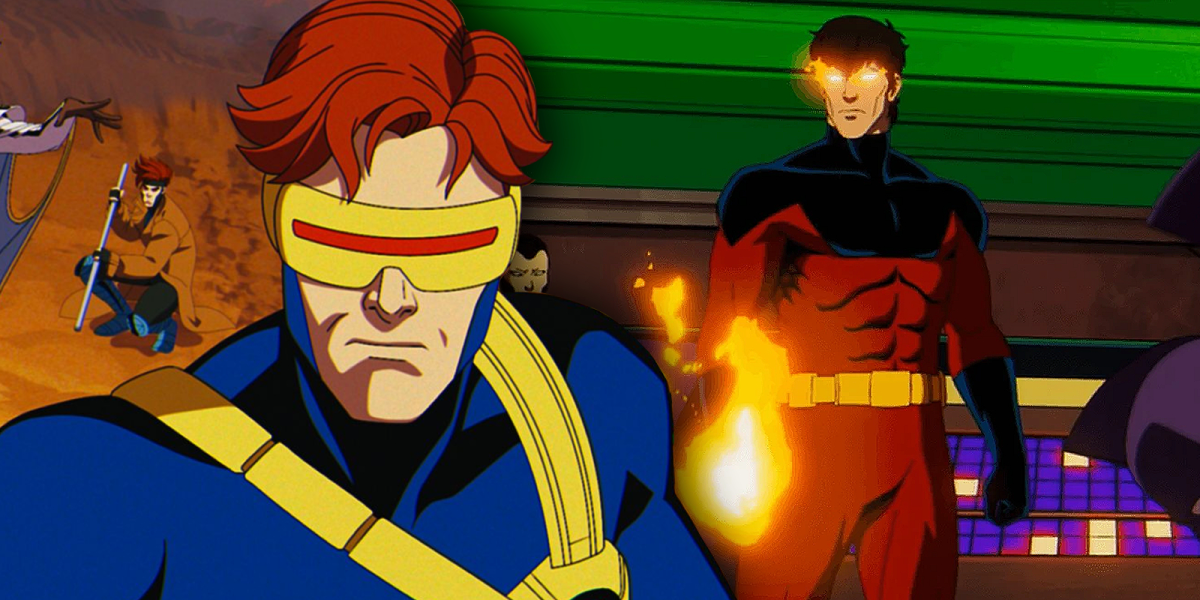The new trailer for Christopher Nolan’s Tenet arrived last week.
As one might expect from a trailer for a Christopher Nolan movie, it is decidedly abstract. It offers very little about what the film might actually be about. It also includes a number of out-of-context shots from the film’s various set pieces, teasing the spectacle that Nolan brings to his blockbusters.
However, Tenet appears to involve the manipulation of time. The trailer clarifies that such manipulation is not “time travel,” but rather “inversion.” This feels appropriate, given that Nolan’s preoccupation with time is a fixture of his work dating back to Following and Memento. Nolan’s films are typically structured around the human perception time and how delicate that is.
The Russian director Andrei Tarkovsky famously described the art of filmmaking as “sculpting in time.” The idea is that cinema compresses and extends time, that it plays with the way in which audiences experience the flow of time. This is most obvious in editing and cutting, even if Tarkovsky himself preferred to use unedited footage and long takes to create that effect.
Appropriately enough, Nolan’s cinematic technique leans heavily on editing and cutting. To pick one small example, he’s appreciably less fond of long takes than other prominent auteurs like Martin Scorsese and Steven Spielberg. Even in Nolan sequences that feel like they are long takes – the hallway fight in Inception, for example – the director is constantly cutting.
Nolan’s cinema fixates on the human perception of the passage of time. This is most obvious in a film like Inception, which unfolds at five different levels, with time moving incrementally slower at each level down. Even in Inception, cinematic technique drives the manipulation; Nolan once remarked that he wrote Inception to justify using slow motion.
Similarly, Interstellar uses the theory of relativity to ensure that time moves differently for astronaut Coop (Matthew McConaughey) and his daughter Murph (played at various stages of her life by Mackenzie Foy, Jessica Chastain, and Ellen Burstyn). The idea is to justify a device where two people can experience the passage of time at very different rates.
Inception and Interstellar (and possibly Tenet) stand out in Nolan’s filmography because they use devices to externalize and justify the normally subjective experience of time’s flow. Nolan’s other films tend to internalize that distortion of time. The Prestige unfolds primarily in competing and interlocking flashbacks, each of the two primary characters reading the other’s diary of events. In Batman Begins, Bruce Wayne (Christian Bale) keeps finding himself thrown back to the night of his parents’ death, literalizing the idea that Bruce is trapped by that trauma.
Nolan’s big break, Memento, is a film that famously runs in two directions at once – the primary narrative thread keeps jumping backwards, interspaced with small disjointed segments that are moving forward. Both sequences intersect at the climax. This manipulation of narrative is designed to place the audience in a perspective similar to that of Leonard (Guy Pearce).
Nolan’s fascination with time has become a trademark, and it has been subject to derision. He received criticism for his structuring of Dunkirk. The film covers a week on the mole, a day on the sea, and an hour in the air – all cross cut. Critics saw this as “clumsy and unnecessary” or “distracting,” with some suggesting that non-linear storytelling had become a crutch for the director.
This ignores the way in which the film’s manipulation of time is essential to the story that it’s telling. The characters in Dunkirk are all separate from one another, operating independently: Tommy (Fionn Whitehead) is trapped on the beach, Mr. Dawson (Mark Rylance) is sailing across the sea, and Farrier (Tom Hardy) has taken to the sky. They are part of something much larger than themselves.

The experiences that bring them to that larger event are unique, each facing challenges that the others will never comprehend. However, at the climax of Dunkirk, all three perspectives line up with one another. The three share a singular moment, all part of the same feat and working to the same goal. At the climax of the film, all three experience time in the same way.
However, the moment is fleeting. Once the evacuation is complete and the troops are off the beach, the three characters return to their own subjective experience of the passage of time. Farrier’s capture minutes after the evacuation is cross cut with Dawson’s return home that evening is cross cut with Tommy’s train ride farther back inland.
Unsettling anxiety underpins all of these films, the idea that everybody experiences and processes the world in different ways and at different speeds, and that it takes a monumental event for two different perspectives to overlap with one another. It seems almost impossible for two people to share a meaningful moment with one another.
This fear is personal. Many of Nolan’s protagonists are separated from their families, with Nolan conceding that Coop’s fears about missing Murph’s childhood in Interstellar reflected his own fears as a parent leaving his children to go to work. Nolan gives his movies codenames that seem to allude to the fear of missed moments in his own children’s lives: “Rory’s First Kiss,” “Flora’s Wedding.”
The shared experience of time is an essential aspect of a meaningful connection – an understanding that people are moving through the world at the same pace. Nolan’s films challenge that underlying assumption in ways that tap into modern life. Nolan might be old-fashioned when it comes to things like the use of film and the theatrical release model, but his storytelling strikes a contemporary chord.

Many have written about the difficulty in keeping and quantifying time within the current pandemic. What day is it? Does it matter? However, this is perhaps an extension of a broader trend; it has been suggested that everything from mass media to technology to the internet is warping our perception of time. It’s not uncommon to hear arguments that individual years feel like they lasted decades.
The digital age has meant that many people are effectively living in their own curated world and filtering their own version of reality through social media. Polarization is heightened, and it has been increasingly difficult for people to connect across these gulfs. Leonard from Memento almost seems like an avatar for the 21st century, a man rejecting reality to create his own narrative.
As many have noted, Nolan’s films are preoccupied with narrative. His characters constantly manipulate and distort reality around themselves, constructing self-serving stories to both trap and comfort them; Bruce Wayne makes Batman something bigger than himself, while Leonard creates a killer that he can hunt to assuage his guilt for his role in the death of his wife.
However, for Nolan, time is a much more primal force. It cannot be escaped or outwitted. In Inception, ambitious efforts to exploit the time distortion of dreams end up trapping Cobb (Leonardo DiCaprio) and Saito (Ken Watanabe) in “limbo.” Coop’s attempts to outwit relativity ultimately come to nothing in Interstellar, turning him into a “ghost” that haunts his daughter.
The trailer for Tenet is arguably too ambiguous to properly dissect, but there is one very telling exchange. The film’s mysterious villain seems to be trying to harness time itself, rendering him an existential threat. “I’m not seeing Armageddon here,” muses the protagonist (David John Washington). His colleague (Clémence Poésy) replies, “No. Something worse.”





